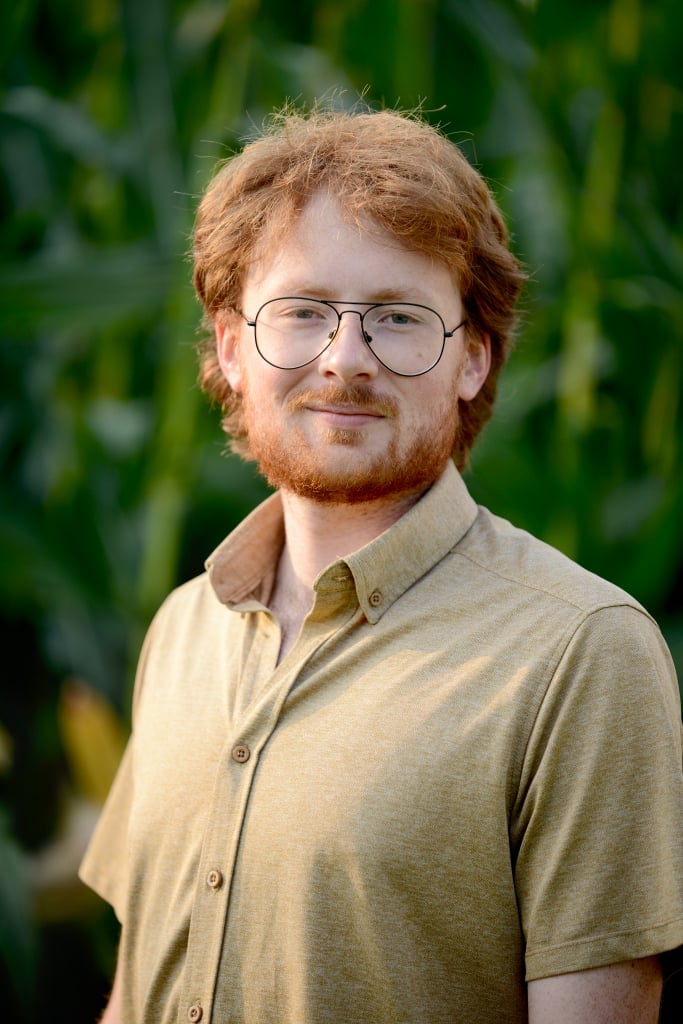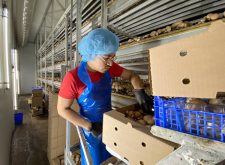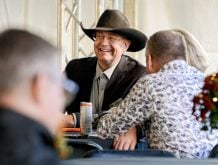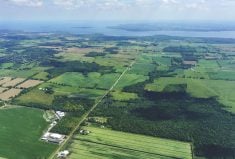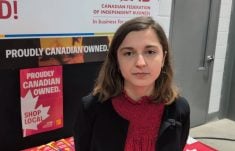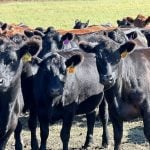Student engagement was high at the Future of Food Conference in Ottawa, as youth turned out to hear panellists and keynote speeches by stakeholders from across the agriculture value chain.
Several student groups from Queen’s, McGill and the University of Ottawa heard about sustainability, innovation and politics in agriculture at the February event.
Why it matters: Youth engagement suggests interest in the future of Canadian agriculture.
Read Also

Canada seventh-most influential country on agri-food
Report from Dalhousie University and MNP shows Canada ranks seventh among G20 countries on agri-food influence.
Neleah Lavoie and Kayla Emmerton both sit on the 4-H Youth Advisory Committee that has 10 youth representatives, one from each province.
“I think in its simplest forms, ag is the future,” Emmerton said. “With our growing population, we have to find new ways to feed people and to make sure that we can still continue to live on earth.
“That’s just so exciting, there’s so much new technology in the world that can help us be more efficient and effective with what we’re growing and producing. That’s exciting, and I want to be a part of that.”
Lavoie spoke about challenges in the sector.
“I don’t think ag is limited to what we think sometimes (is) agriculture,” she said. “The issues we’re facing as a world right now, ag is in every single sector, and I think it’s important that we recognize that, and that we attack it as a problem.”
The two women both grew up around agriculture.
“My aunt and uncle ran a dairy farm that I lived right across the field from, so I learned so much from them growing up,” Emmerton said.
Lavoie grew up in rural Prince Edward Island surrounded by potato farms.
McGill University farm management student Aidan Velthuis, who grew up on a dairy farm south of Ottawa, also attended the conference.
“I’m hoping to hear some different perspectives on sustainable agriculture, more regenerative agriculture as we move forward and try to keep our soils healthy.”
Queens University student Jonas Marshall said the conference was an opportunity to unite people from across the agriculture industry.
“We’re not just getting the people who are working in the farms and the people who are working in kind of that financial side,” he said. “It’s everybody together, working towards this one common goal of sustainability.”
Marshall was part of a startup that competed in the NASA Deep Space Food Challenge, in which competitors developed new technologies to produce food in future space missions. After moving past the first round, they received $30,000 in funding.
“Unfortunately, we didn’t make it past the next round so we were kind of left with a product without a real audience or market. So, we looked to tailor our over-engineered plant box that was designed for space to kind of move it up north to deal with some issues with growing food in non-arable land.”
Marshall said the experience made him eager to learn more, particularly about food waste.
“This is something that we need to improve on, and it is really nice to see these big industries as well, you know, making that commitment for the regenerative farming, realizing that it is not sustainable for the land.”
He was also interested in panellists’ discussions about product innovation.
“Learning how we can combine different food groups, or create a product that benefits Canadians … getting those extra proteins in there as well as feeding you at a lower cost, I think is going to be is something that younger people should really be aware of and hopefully be interested in moving forward.”



